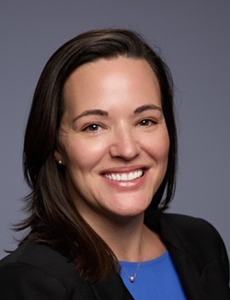Opinion | Empathic Curiosity Needs to Be at the Center of Workers’ Comp Claims. Here’s How to Do That
For much of the past decade, the workers’ compensation industry has shown great enthusiasm for advocacy-based claims models.
Countless articles enumerate the benefits of the whole person approach to claims management. Progressive employers espouse of its value at conferences, and awards are given out to individuals and organizations demonstrating positive outcomes.
The industry, as a whole, is more unified than ever on a team-based approach that makes the injured worker the customer at the center of the claim. Or are we?
For the first time ever, the 2019 Workers’ Compensation Benchmarking Study polled frontline claims professionals rather than claims leaders to determine alignment between industry leadership and staff that directly handle workers’ compensation claims. Visibility into how views of frontline claims staff mirror or differ from claims executives is not only valuable to the industry — it’s vital.
At first blush, results from the survey seem to demonstrate a misalignment when it comes to claims advocacy. Only 28% of frontline claims staff report even knowing what an advocacy-based claims model is, let alone using it.
Yet, fortunately, their priorities indicate that they are actually embracing the approach … even if they don’t know it.
Frontline claims professionals rank “return-to-work/patient functional outcomes” as the most important measure of medical provider quality, an indicator that provider selection is not based on cost but on which provider will provide the best care.
In addition, “employee return-to-work within anticipated benchmarks” was ranked as the most important core competency critical to claims outcomes, followed closely by “employee return to the same or better pre-injury functional capabilities.” All these measures indicate an approach to claims management focused on outcomes, not costs.
To fully embrace an advocacy-based claims model, training of frontline staff is a logical place to start. Here, there is even more reason to be optimistic: 75% of frontline staff report a desire for empathy training and 30% want to better understand psychosocial risk factors and mental health issues.
Frontline claims staff seem to indicate they want to provide advocacy-based claims management, but perhaps, for them, it’s just called “doing the right thing.”
Empathy reflects an emotional connection, an understanding, that is valuable in an advocacy-based claims model. But there’s something that should start before both empathy and advocacy — curiosity.
In the book Curious, author Ian Leslie classifies empathic curiosity as “genuinely trying to put yourself in the shoes — and mind — of the person you’re talking to, to see things from their perspective.” Professional guru and author Simon Sinek takes it a step further, saying that effective empathy requires curiosity and espouses both as essential leadership skills.
When embracing empathic curiosity in workers’ compensation claims, we gain a better understanding of what is really going on with the injured employee. We also take better ownership and leadership of the claim.
Being curious empowers claims professionals to ask open-ended questions. To listen. Some people have natural empathic curiosity. For others, training can help.
When an injured employee says, “I’m not feeling well today,” we often jump straight to empathy. But when trained to be curious, the response may simply be, “Tell me more.”
And then we listen.
With enough practice, empathic curiosity can come naturally. Frontline staff are asking for training, so let’s give it to them. By practicing this, we will be creating an employee-centric claims model that focuses on employee engagement, truly listening to the injured employee’s needs, removing obstacles and building trust. Calling it an advocacy-based claims model is just a label. &











